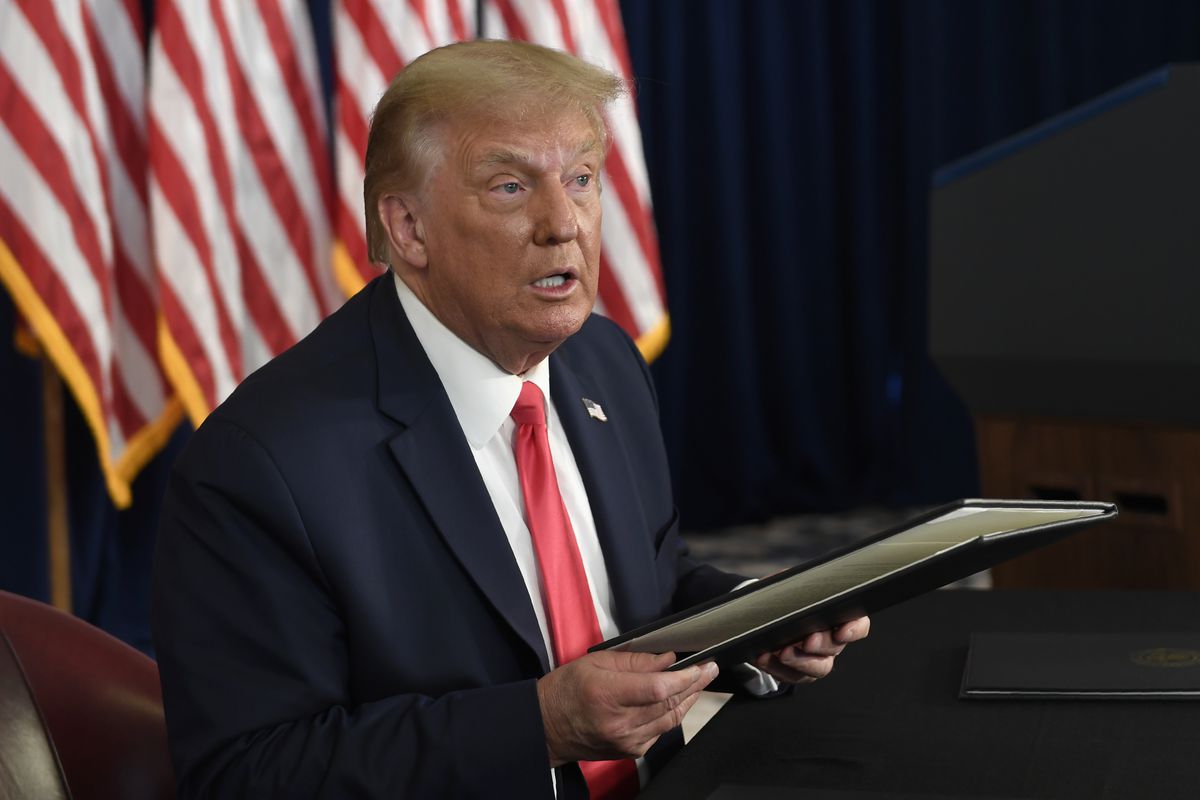The latest
Trump confronts criticisms of COVID-19 handling: ‘We did it just the right way’
In times of crisis — wars, hurricanes, pandemics — effective leaders strike a balance between inspirational rhetoric and leveling with the public about the tough times ahead.
Facing the coronavirus, Trump chose a different path, acknowledging that from early on he was intentionally “playing down” the threat from an outbreak that has gone on to kill more than 190,000 Americans. His rosy assessment of the peril confronting the nation spotlights the struggles he has faced in trying to steer the United States through the challenge of a pandemic.
Trump on Thursday placed himself in the august company of Roosevelt and Churchill for the way he has handled this crisis, adding that he had low-balled the threat to prevent “panic.”
He spoke with admiration of Roosevelt’s famous admonition against fear and Churchill’s ability to project calm during the bombing of London. Trump said of his own performance: “We did it the right way and we’ve done a job like nobody.”
“They wanted me to come out and scream, ‘People are dying, we’re dying,’” the president said at a campaign rally in Michigan. “No, no, we did it just the right way. We have to be calm, we don’t want to be crazed, lunatics. We have to lead.”
News
8:47 a.m. States brace for worsening teacher shortages as pandemic forces some to opt out
INDIANAPOLIS — With many teachers opting out of returning to the classroom because of the coronavirus, schools around the U.S. are scrambling to find replacements and in some places lowering certification requirements to help get substitutes in the door.
Several states have seen surges in educators filing for retirement or taking leaves of absence. The departures are straining staff in places that were dealing with shortages of teachers and substitutes even before the pandemic created an education crisis.
Among those leaving is Kay Orzechowicz, an English teacher at northwest Indiana’s Griffith High School, who at 57 had hoped to teach for a few more years. But she felt her school’s leadership was not fully committed to ensuring proper social distancing and worried that not enough safety equipment would be provided for students and teachers.
Add the technology requirements and the pressure to record classes on video, and Orzechowicz said it “just wasn’t what I signed up for when I became a teacher.”
New Cases
Analysis & Commentary
7:51 a.m. Pritzker must get tough with Exelon to keep nuclear plants from closing
Gov. Pritzker needs to play hardball with Exelon. The energy provider is threatening to close its Byron and Dresden nuclear power plants, claiming they no longer are profitable. Prizker wants the company to be more transparent with its finances first; Exelon is reluctant to open its books.
To avoid shutting down the plants, Exelon is asking the state for more Zero Emission Credits. The inclusion of ZECs in the 2016 Future Energy Jobs Act saved Exelon’s Clinton and Quad Cities nuclear power plants and prevented Illinois from becoming more reliant on fossil fuels. Nevertheless, ZECs have their drawbacks.
According to the Future Energy Jobs Act, utilities in Illinois must purchase ZECs equivalent to 16% of the megawatt-hours they sold in 2014. The utilities then distribute the ZECs to approved power plants and recoup the costs by raising rates. In terms of preserving the state’s clean energy infrastructure, ZECs make sense. But now, more than ever, officials should worry about rate increases.
First, the economic impact of COVID-19 has left many Illinois residents devastated. A year ago, a modest increase in energy costs would be trivial. Now, keeping energy costs low is essential for a robust economic recovery.



















